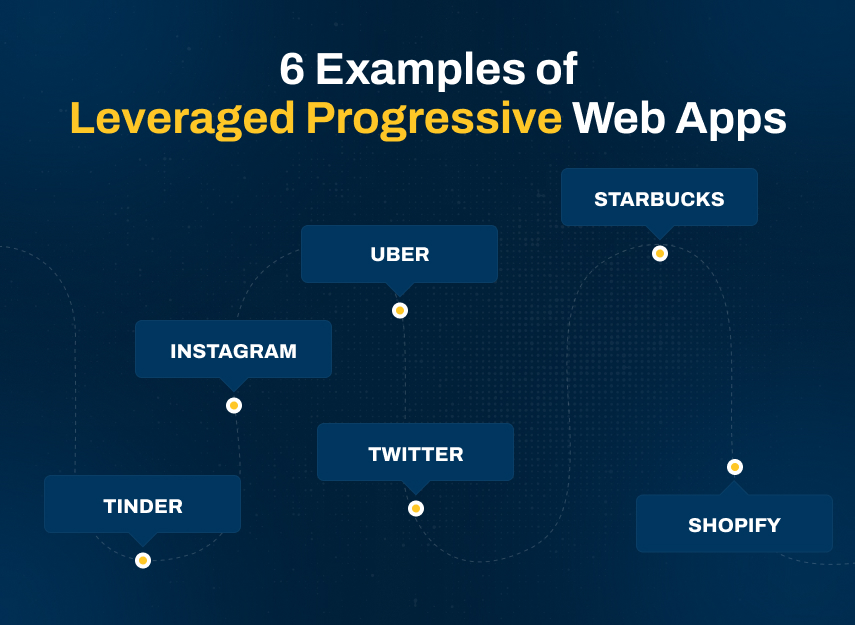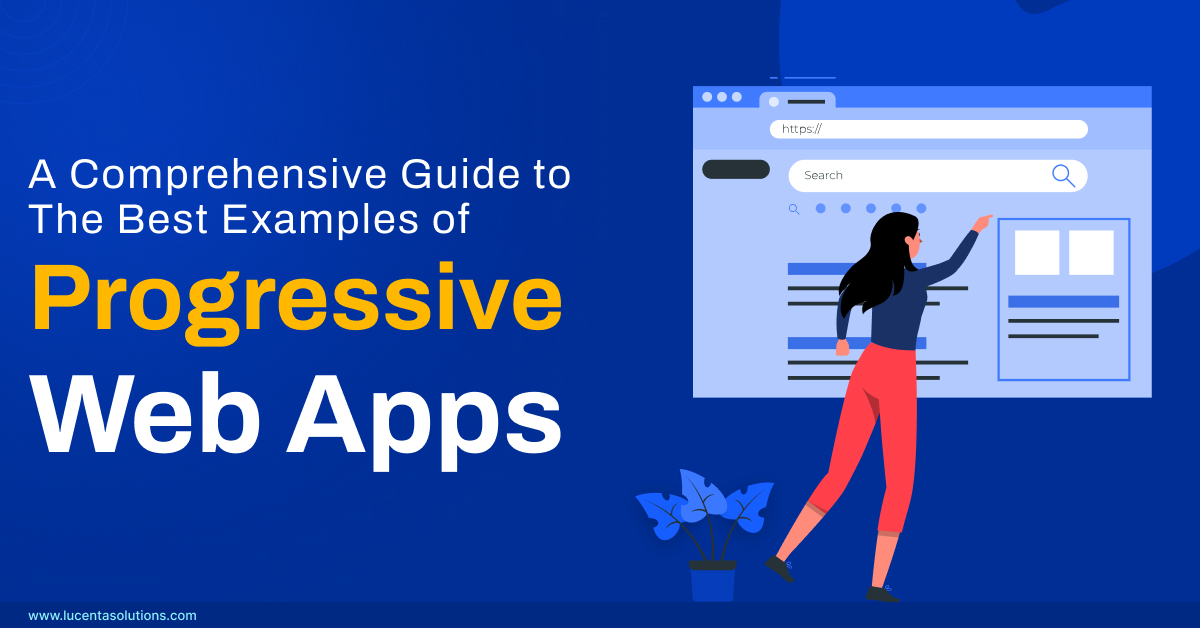A Comprehensive Guide to the Best Examples of Progressive Web Apps
Progressive web apps (PWA) have finally matured from peripheral technology to a mainstream approach that is here to stay.
Introducing PWAs in 2015, Google sought to put the mobile-centric experience at the center of attention.
Starting from startups to Fortune 500 companies are in the race to adopt PWA to reach their customers.
A report conducted by Emergen Research states that by 2027, the global market for PWAs is expected to reach USD 10.44 billion.
Interested in what big companies are adopting PWAs and what outcomes they have achieved?
This blog will introduce you to the progressive web application and how big companies are leveraging the power of PWA to reach out to their customers.
So, let’s get started.
What is a Progressive Web App and How Can It Help Your Business?
Simply put, progressive web apps are websites that can behave like native applications in the browser, but technically, they are more than a website. With all the functionality of a native app, and usability similar to a website, they combine all the benefits of both.
By combining the best features of native and web experiences, progressive web apps help businesses and developers achieve innovative and user-friendly solutions.
A PWA operates much like a native application, but it is easier to use, faster, and more convenient than a native application.
6 Examples of Companies That Have Leveraged Progressive Web Apps to Reach Out to Their Customers
The benefits of progressive web apps have motivated many companies to adopt PWAs to reach their audience more effectively. Below we have curated a list of a few of the most popular companies using PWA:

1. Uber
Uber is one of the world’s largest ride-hailing apps, providing service in more than 10,000 different cities worldwide.
Putting its customers first and combining technology with innovation, Uber has maintained its leadership position. As Uber expanded globally, the company faced challenges in creating a decent user experience in a palace with poor internet access and low-end devices.
Several brainstorming sessions led Uber to adopt the PWA.
The PWA version of Uber, which is only 50KB, will allow users to hail a ride without having to download Uber’s traditional mobile app. With a small size, Uber was able to load quickly even on low-speed connections, ensuring a seamless ride.
By making Uber’s services available through the browser, PWA enabled the company to ensure that their services would also function smoothly on low-end devices.
2. Starbucks
Globally, Starbucks is recognized as one of the leading coffeehouse chains.
In 2015, the company launched a mobile application that allowed customers to place online orders from their mobile devices. However, online ordering was not available through the browser, meaning anyone who wanted to order a coffee had to download the app first. Low Internet connectivity leads to fewer people placing orders online, and mobile apps are often unable to function.
To make online ordering through a web browser possible, Starbucks had to rethink its strategies and development methods.
The system has been made accessible to both existing and new markets through a Starbucks Progressive Web Application.
Starbucks saw its desktop users ordering twice as often after progressive web app development.
3. Twitter
Twitter is one of the most well-known microblogging platforms in the world, with an estimated 396.5 million users globally.
It is constantly looking for ways to improve its mobile web experience to be more practical, faster, and entertaining for its users since more than 80% access it through their mobile devices.
As a result, Twitter Lite was introduced. Smaller than its native Android application, it features native features like home screen shortcuts, web push notifications, and temporary offline browsing.
By implementing PWA in its platforms, Twitter has seen increased sales by 65 percent, a 75 percent increase in Tweets sent, and a 20 percent drop in bounce rates.
4. Instagram
A photo and video-sharing platform, Instagram, had an estimated 1.440 billion users in July 2022, making it one of the biggest platforms worldwide.
As part of the effort to create a native-like experience on the web, Instagram released a PWA version.
The goal of PWA is to mimic the native app in terms of appearance and give the user access to some extra features that increase the user experience.
With Instagram’s PWA format, it consumes fewer data and delivers a smooth experience on low-end devices.
5. Spotify
Spotify should be at the top of your list if you enjoy listening to music. It is not just music that this digital music service is great for. It is also able to offer podcasts and videos from renowned artists.
Spotify, despite being the most famous streaming service in the world at the time, was experiencing lower conversion rates. The conversion rate was improved by implementing lots of changes and improvements, and PWAs were also introduced.
With Spotify PWA, new users can sign up for free and then upgrade to premium once they experience Spotify’s excellent products.
A native experience can be enjoyed with Spotify PWA. With its accessibility, speed, functionality, and responsiveness, desktop users will enjoy a fantastic user experience.
6. Tinder
The Tinder dating app is the world’s largest online dating app, with over 65 billion users worldwide.
A PWA version of Tinder has been introduced by the company called Tinder Online. Which aims to improve the user experience and engagement by getting rid of its low speed.
Using a PWA instead of a native app enabled Tinder Online to significantly reduce its data investment from 30 MB to only 2.8 MB. In addition, the PWA load time for Tinder was shortened from 11.9 seconds to 4.69 seconds, resulting in higher user engagement.
Final Take: Take Advantage of Lucenta Solutions’ Progressive Web Application Development Expertise
Giants are increasingly turning to progressive web apps to overcome the challenges of native applications. PWAs have proven to be effective in delivering positive results for organizations, as you can see from the example above.
A variety of benefits can be derived from PWAs, and if you are interested in leveraging them to improve your conversion rate and revenue figures. Then Lucenta Solutions is here to help you out.
Our expertise as a PWA development company allows Lucenta to offer users the same interactive experience as native apps without the high costs associated with them.




